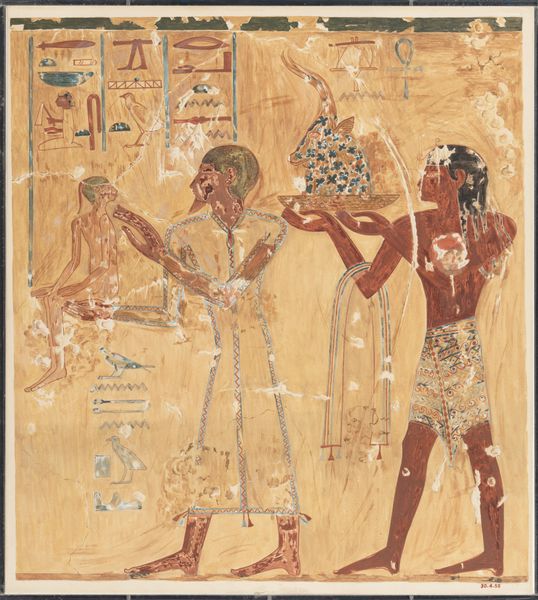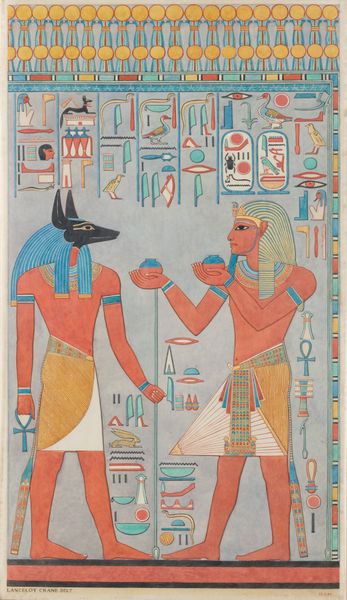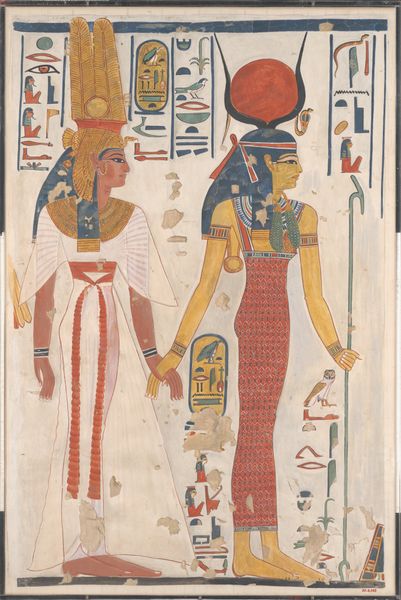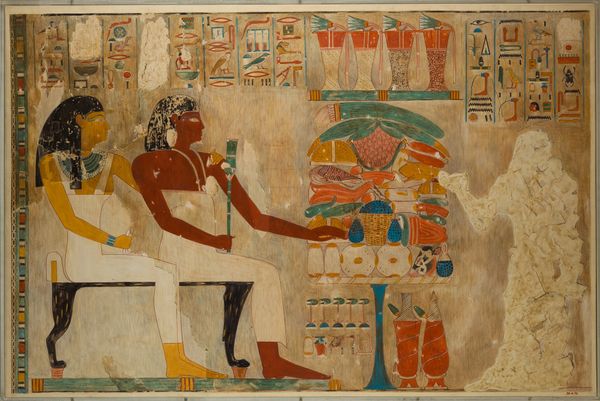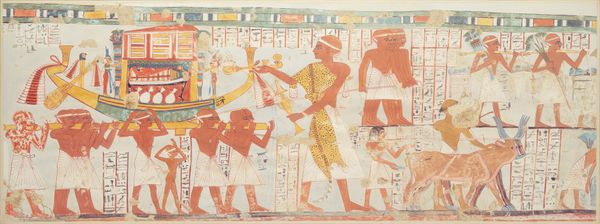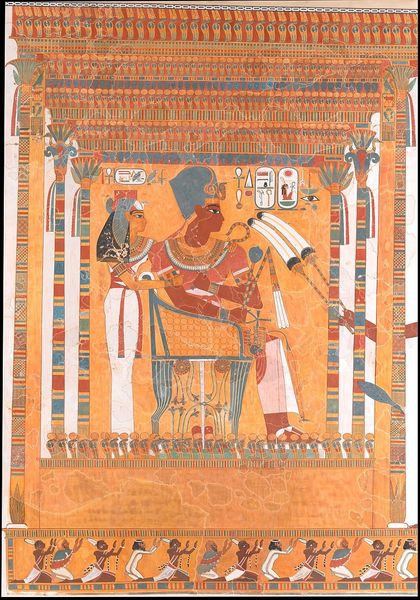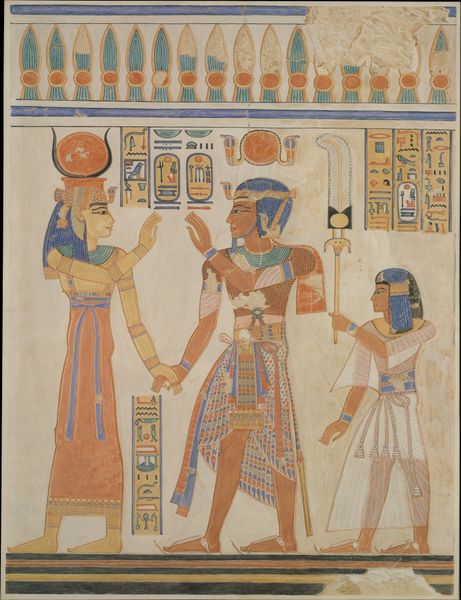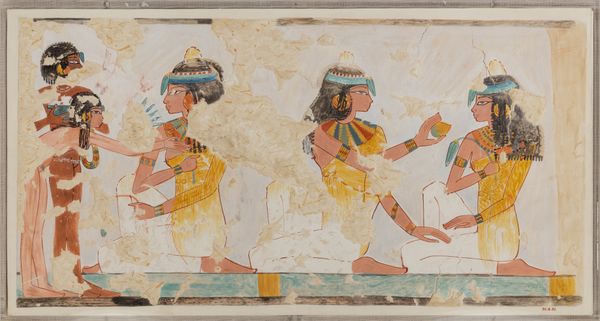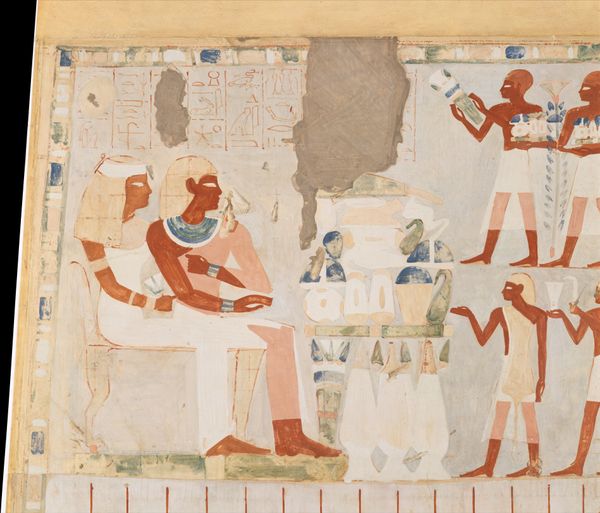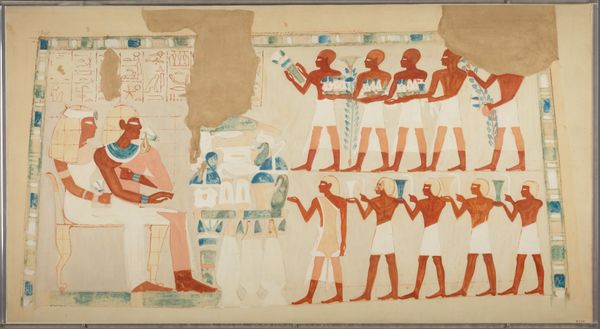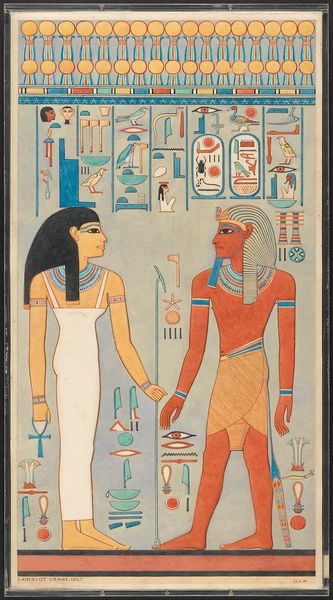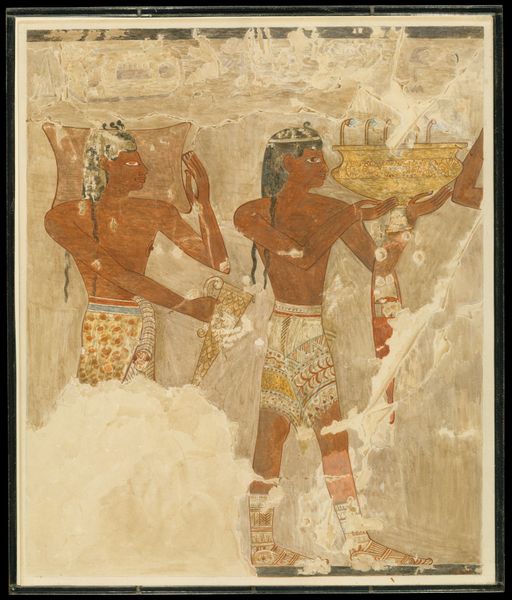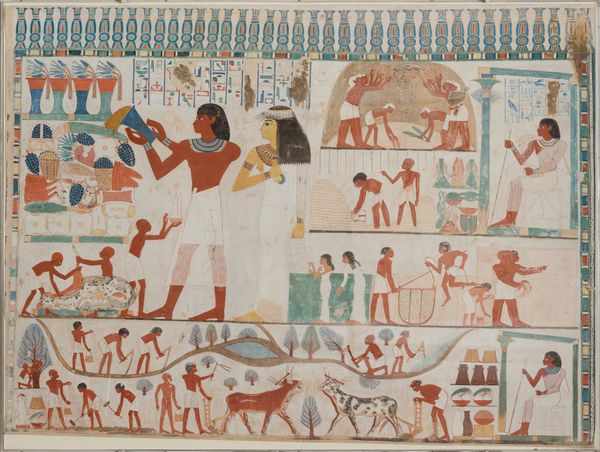
#
abstract painting
#
water colours
#
mother
#
muted colour palette
#
collage layering style
#
fashion and textile design
#
mural art
#
handmade artwork painting
#
egypt
#
men
#
painting art
#
watercolour bleed
#
watercolor
Dimensions: Facsimile: H. 81.5 cm (32 1/16 in.); W. 71 cm (27 15/16 in.) scale 1:1 Framed: H. 83.3 cm (32 13/16 in.); W. 73.1 cm (28 3/4 in.)
Copyright: Public Domain
Nina de Garis Davies made this painted copy of an Egyptian tomb painting. In the original, from around 1500 BC, we see the Pharaoh Thutmose I with his mother, Seniseneb. Davies’ reproduction gives us insight into the royal family dynamics of ancient Egypt, how they wished to be seen, and the visual codes by which their power was communicated. Thutmose is depicted in the prime of life, while Seniseneb is more modestly rendered. The hieroglyphs and sacred objects reinforce the sense of divine right and the endurance of the royal line. Davies worked for the Metropolitan Museum of Art’s Egyptian Expedition, meticulously recording tomb decorations. Her copies were not just documentation; they were also artistic interpretations, influenced by the aesthetic sensibilities of the early 20th century. To truly understand this image, scholars delve into Egyptology, art history, and the social history of early museums. By studying the original tomb and the circumstances of its rediscovery, we can better understand the complex meanings embedded within this reproduction. Art is never created in a vacuum, and its meaning is always shaped by the social and institutional contexts in which it is made and viewed.
Comments
No comments
Be the first to comment and join the conversation on the ultimate creative platform.
